It's all about the classical music composers and their works from the last 400 years and much more about music. Hier erfahren Sie alles über die klassischen Komponisten und ihre Meisterwerke der letzten vierhundert Jahre und vieles mehr über Klassische Musik.
Total Pageviews
Tuesday, September 24, 2024
What is the greatest Classical Instrument of all...and WHY?
Monday, September 23, 2024
Violinist Shlomo Mintz headlines PPO’s season opener

World-acclaimed violinist Shlomo Mintz will make his Philippine debut Sept. 27, 7:30 p.m. as soloist of the Philippine Philharmonic Orchestra (PPO) under the baton of music director Gregorz Novak.
The concert at the Samsung Theater for Performing Arts in Makati City will feature him as soloist in the Bruch Concerto which he has earlier recorded with the Chicago Symphony under Claudio Abbado.
“I met Maestro Novak in a famous cruise ship where famous international musicians perform. He also conducted me in my first performance of Bartok’s Violin Concerto No. 2 in Copenhagen. I’m very much looking forward to our renewed relationship and sharing music on stage with Maestro Novak!” Mintz said.
A symphony of friendship
Thailand and Philippines celebrate 75 years of diplomatic relations through music.
The harmonious celebration of 75 years of diplomatic relations between Thailand and the Philippines recently unfolded in Manila, marked by two spectacular concerts that highlighted the rich cultural heritage of both nations. Thailand’s leading youth orchestra, the Siam Sinfonietta, performed for the first time in the Philippines, mesmerizing audiences and fostering deeper ties through music.

Hosted by the Embassy of Thailand in the Philippines, led by Ambassador Tull Traisorat, the event was held Sept. 16 at the Metropolitan Theater and Sept. 17 at the historic Manila Cathedral. The concerts featured the artistry of young Thai musicians under the direction of internationally renowned conductor Somtow Sucharitkul. A Thai National Artist and true polymath — conductor, composer, author, and filmmaker — Somtow is the first Asian to receive the European Cultural Achievement Award. He is the artistic director of Opera Siam and the author of more than 100 books. His work was first heard in the Philippines in the 1970s.

The concerts celebrated not only musical mastery but also the enduring friendship between the two nations. The Siam Sinfonietta, composed of young, dynamic musicians, performed a diverse program that included classical pieces by Puccini, Mozart, and Strauss, alongside Stravinsky’s rousing “Petrushka,” which provided a powerful conclusion to both evenings. The orchestra's performance was a testament to the power of youth in shaping the future of cultural exchange.

A highlight of the concert series was the inclusion of a Filipino composition by National Artist Ramon Pagayon Santos, bringing a local touch to the international event. This addition emphasized the deep cultural connections between the two nations, further solidifying the symbolic nature of the occasion. Adding to the magic of the evening was 15-year-old Thai piano prodigy Chayapon Chanporn, whose virtuosity captivated the audience, along with soprano Barbara Zion, whose recent performance with the Siam Sinfonietta at Carnegie Hall earned her international acclaim.

The Manila concerts underscored the role of music in diplomacy. By blending works from European composers with Southeast Asian compositions, the event not only showcased musical excellence but also symbolized the cultural synergy that has defined Philippines-Thailand relations over the past seven decades. Each performance offered a unique experience, yet both concerts shared the same spirit of unity, hope, and artistic collaboration.

As the final note of Stravinsky’s “Petrushka” echoed through the halls of the Metropolitan Theater and Manila Cathedral, the concerts came to a triumphant close, celebrating 75 years of diplomatic ties and the promise of many more years of friendship, collaboration, and shared cultural journeys between Thailand and the Philippines. The successful event, free to the public, was met with enthusiastic applause and admiration, leaving the audience inspired and deeply moved. This historic milestone of diplomatic relations will be remembered as a high note in the cultural exchange between the two nations.


K-pop girl group ILLIT to return with new album in October
K-pop girl group ILLIT of HYBE Labels will be making their comeback to the music scene with a new album in October.
ILLIT will be releasing their second mini-album “I’ll Like You” on Oct. 21, or just in seven months after they came out with their first mini-album “Super Real Me” in March.

ILLIT (X)
ILLIT will release "I'll Like You" on Oct. 21 (Belift Lab)
While “Super Real Me” focused on capturing what they called “my true self,” “I’ll Like You” will tell the story of the “self” that becomes deeply immersed in the moment.
ILLIT will portray their candid charm in “I’ll Like You” as they encounter a “you” they wish to get closer to, navigate moments of doubt, and ultimately follow their heart to discover their own answers.
“Super Real Me” sold 380,056 copies in the first week of release, based on data from Korea’s Hanteo Chart.
The album entered the Billboard 200 chart, while the lead single “Magnetic” made history as the first-ever K-pop debut track to enter the Billboard Hot 100 and the UK Official Singles Top 100 charts.
Recently, “Magnetic” surpassed 400 million streams on Spotify, becoming the fastest K-pop debut track to reach the milestone.
Pre-orders for “I’ll Like You” started on Sept. 23 with the official release at 6 p.m. KST on Oct. 21.
ILLIT's members are Yunah, Minju, Moka, Wonhee and Iroha.
Sunday, September 22, 2024
IDUYAN MO (Ryan Cayabyab and Ateneo Chamber Singers)
Saturday, September 21, 2024
While My Guitar Gently Weeps (Taken from Concert For George)
The Hero in Women’s Clothes: Saint Saëns’ Le Rouet d’Omphale
by Maureen Buja, Interlude
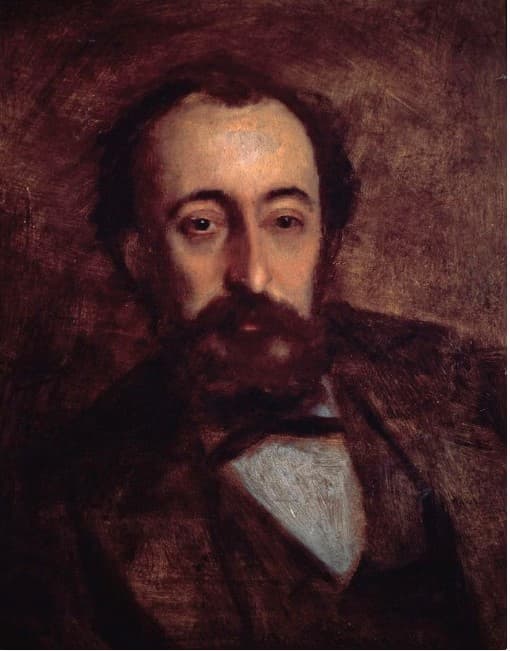
Gustave Jacquet: Portrait of Camille Saint-Saëns, 1870
Omphale was the queen of Lydia, in the cross-Bosporus region of modern-day Turkey. After her husband’s death, she reigned as queen. She comes into our knowledge as the keeper of Hercules after his murder of Iphitos, a prince and one of Jason’s Argonauts.
After Hercules had completed his Twelve Labours, he came to Ochelaia to compete in an archery competition. The prize was King Eurytus’ daughter Iole’s hand in marriage. Despite winning the competition, Eurytus and his sons (except for Iphitos) refused to give Hercules the prize because he had killed his children by his earlier wife Megara. Megara had been given to Hercules by her father, the King of Thebes, and they had several sons together. Unfortunately, Megara hated her husband and so, in a fit of temporary madness, Hercules killed all their children and then his wife.
Iphitos, the sole supporter of Hercules, went to see Hercules after he was blamed for the loss of cattle stolen by Autolycus, a notorious thief. Iphitos told Hercules he would help him look for the stolen cattle but Hercules went mad again and threw Iphitos from walls of the city of Tiryns. Apollo then sentenced Hercules to serve Omphale for one year… dressed as a woman and doing women’s work.
Because of the story’s gender implications, it was a favourite of artists. Generally, the illustrations show Hercules using a distaff to spin wool.
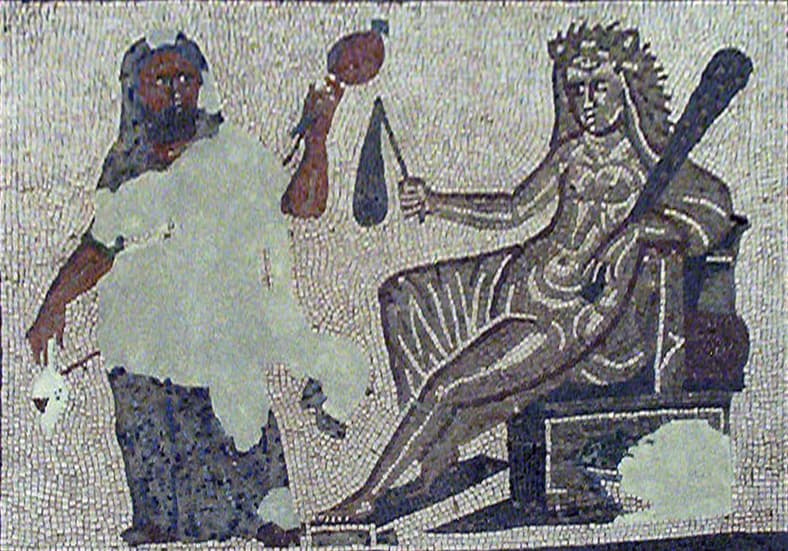
Roman Mosaic from Spain: Hercules and Omphale, 3rd century
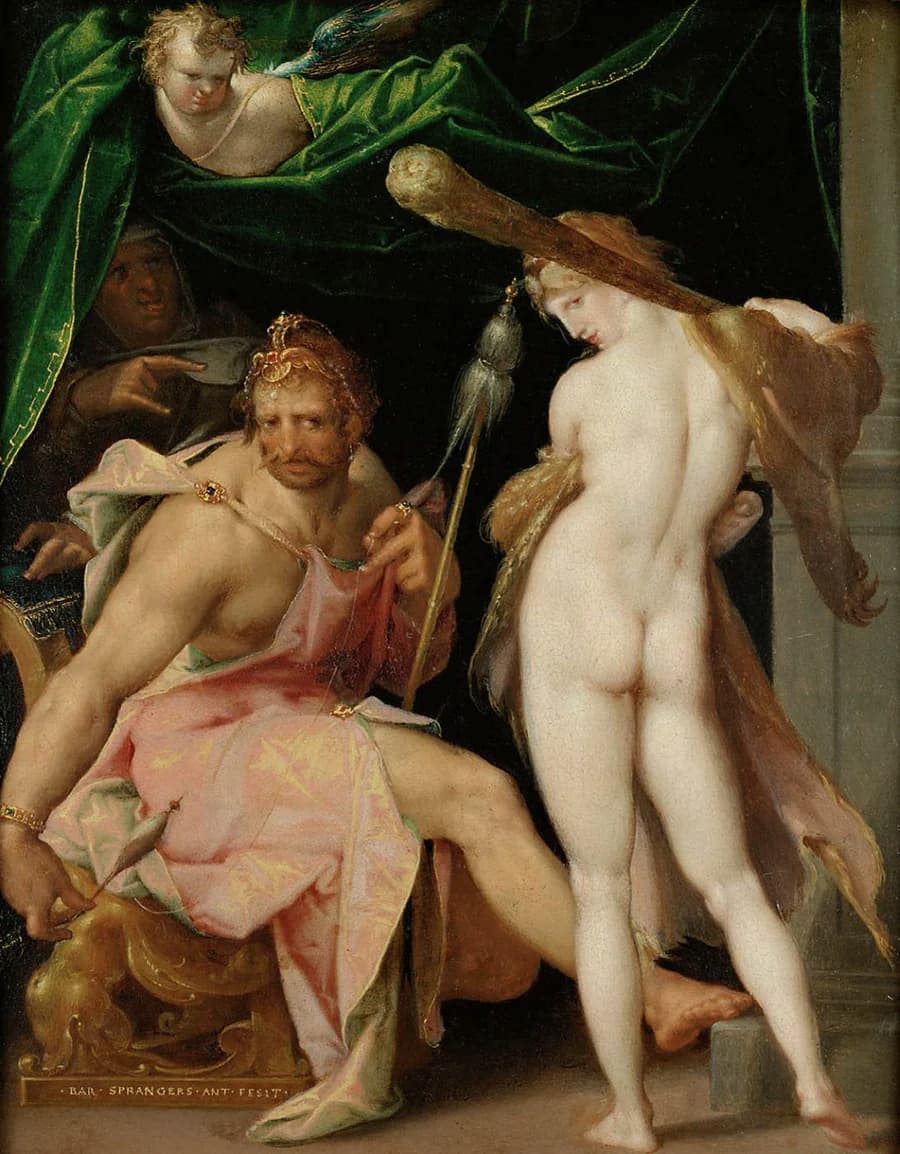
Bartholomaeus Spranger: Hercules and Omphale, ca. 1600 (Vienna: Kunsthistorisches Museum)
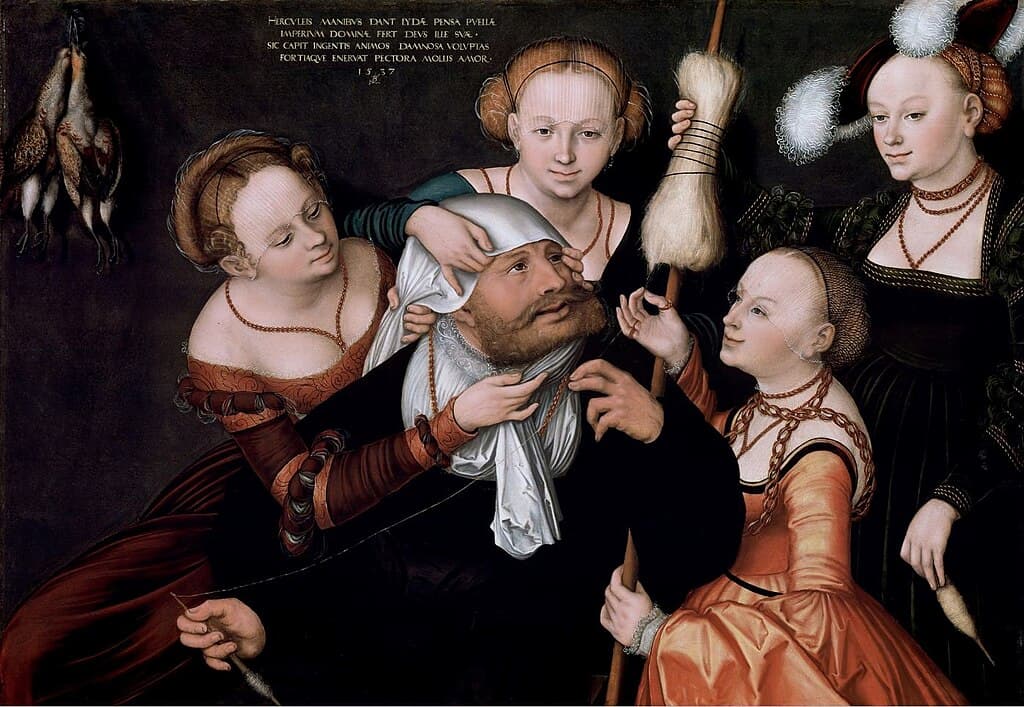
Luca Cranach the Elder: Hercules and Omphale’s maids, 1537 (Braunschweig: Herzog Anton Ulrich-Museum)
The music takes up the idea of spinning in its opening, but underneath are the groans of Hercules. The violins and woods take up the idea of Omphale mocking the fallen hero. Saint-Saëns said that he knew very well that there were no spinning wheels before the Middle Ages and explained at the beginning of the score that the wheel was ‘merely a pretext, chosen simply from the point of view of rhythm and general atmosphere of the piece’. His real subject was that of ‘feminine seduction, the triumphant struggle of weakness against strength’.
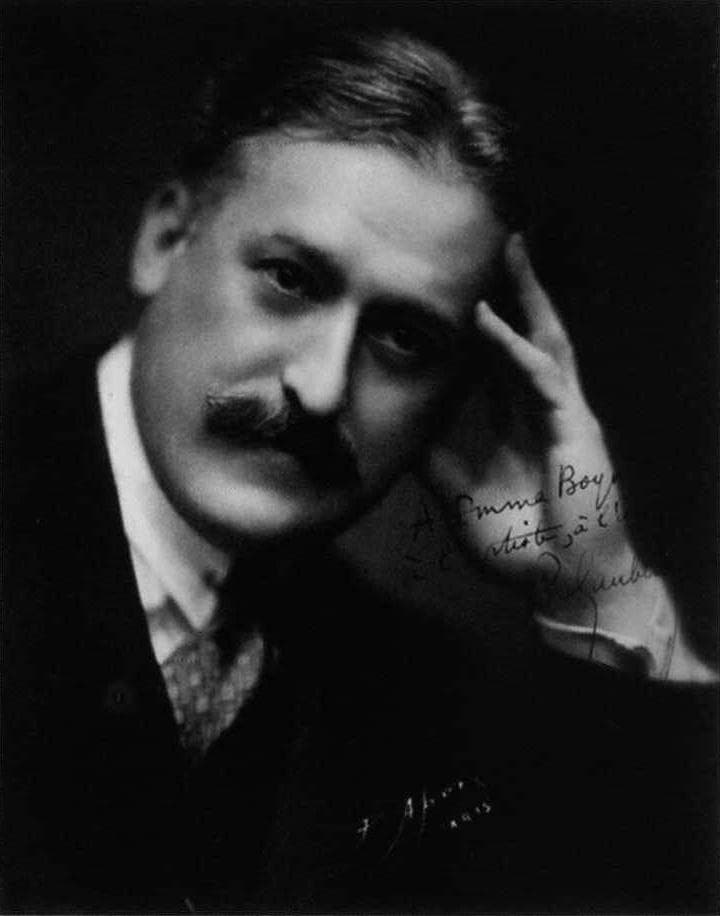
Philippe Gaubert, ca 1920
This recording was made in 1927 in Paris with Philippe Gaubert leading the Orchestre de la Société des Concerts du Conservatoire. Philippe Gaubert (1879—1941) began studying flute at the Paris Conservatoire at age 13 and rose to be one of the most important French musicians in the inter-war years. He was not only professor of flute at the Conservatoire (Marcel Moyse was one of his students), but principal conductor of both the Paris Opera and the orchestra on this recording.
The Orchestre de la Société des Concerts du Conservatoire was founded in 1828 and was made up of the Conservatoire faculty and students. Gaubert was their chief conductor from 1919–1938, succeeded by Charles Munch. The orchestra folded in 1967, and a new orchestra, the Orchestre de Paris, was formed, with Charles Munch returning as their music director for their first two years (1967–1968).
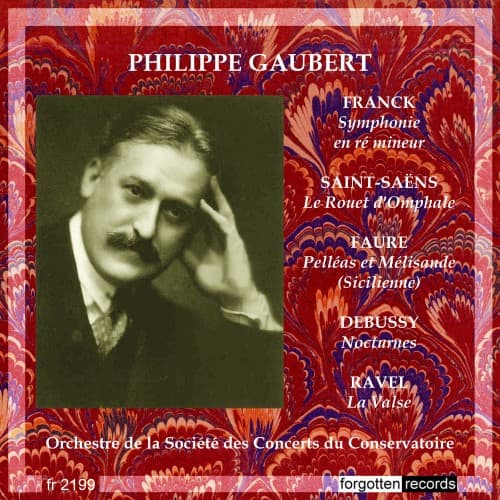
Performed by
Philippe Gaubert
Orchestre de la Société des Concerts du Conservatoire
Recorded in 1927
Violence Against Men: The Age of the Castrato
Fairy tales normally start with “Once upon a Time,” and generally end with “and they lived happily ever after.” But some of the supposed musical fairy tales I’ve been reading about are not nice stories at all. I am talking about countless young boys who underwent castration for musical purposes. What a ghastly convention practiced almost exclusively in Italy throughout the 17th and 18th centuries. Historians tell us, “the taste for castrato voices arose mainly because in large parts of Italy, including the Vatican, women’s voices were not allowed in church.” Since puberty turned choirboys into males and falsettists were considered unsatisfying, the horrid practice began. In a disgusting game of twisting your arm, princely states, leading churches or singing companies approached the parents of a boy who was considered the most talented singer in his church choir. Boys were generally recruited before the age of twelve and from the poorest areas and the poorest families. Since the leading castratos were among the most famous and most highly paid musicians in Europe, it supposedly offered great financial security for many families facing starvation.
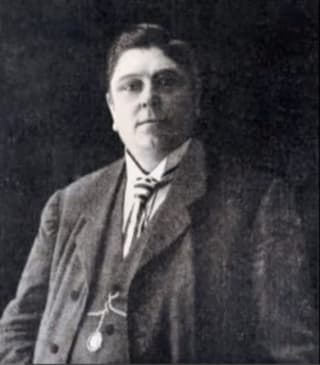
Alessandro Moreschi, 1900
Surgeons used minimal anaesthesia while performing the “operation.” On occasion, “a certain quantity of opium was given to persons designed for castration, whom they cut while there were in their dead sleep…but it was observed that most of those who had been cut after this manner died.” If the boy happened to survive the operation, the lack of testosterone made his thoracic cavity developed greatly, “while the larynx and the vocal cords developed much more slowly.” Combined with intensive training, castrati often had unrivalled lungpower and breath capacity. Singing through small and child-sized vocal chords, their voices were extraordinarily flexible and quite different from the equivalent adult female voice. We only have a single sound document to give us a taste of what a castrato voice actually sounded like. Alessandro Moreschi (1858-1922), the last Sistine castrato, was known as “The Angel of Rome” at the beginning of his career. When he made his recordings in 1902 and 1904, he was clearly past his prime, but we still get a fascinating glimpse into the sound world of the castrato.
Subjecting boys to the “operation” produced a host of different outcomes. A leading scholar writes, “There were high-sopranos, mezzos, and altos, strident voices and sweet ones, loud and mellow voices, more and less flexible throats, very tall men and very short, well and ill-proportioned castrati.” The vast majority of castrati were mediocre or bad singers and became low-level performers traveling between small towns. A very small number, however, reached unprecedented fame, and their abilities had great influence on the development of both oratorio and opera. Let’s go ahead and meet some of the most famous castrati and the repertory they inspired, starting with Giovanni Grossi, nicknamed “Siface” (1653–1697). That particular nickname originated from his stellar performance of “Syphax” in Cavalli’s Scipione affricano in Rome in 1671. He was in the service of the Duke of Modena, and he sang at the opening of the “Teatro Grimani” in Venice. It is said, that his fame even attracted the attention of Queen Christina of Sweden in Rome.
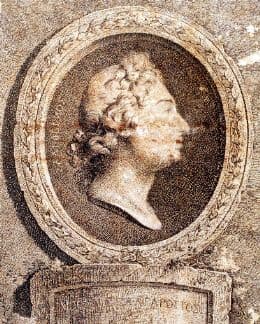
Giovanni Grossi, nicknamed “Siface”
Siface traveled to Paris and London, and a contemporary witness reports. “I heard the famous singer, the Eunuch Cifacca, esteemed the best in Europe and indeed his holding out and delicateness in extending and loosing a note with that incomparable softness, and sweetness was admirable: For the rest, I found him a mere wanton, an effeminate child; very coy and proudly conceited.” His beautiful voice was sadly contrasted by his bad temper, arrogant behaviour, and volatile temperament. Like Alessandro Stradella, “Siface” was murdered for an indiscreet affair, about which he foolishly boasted. When Siface traveled between Ferrara and Bologna, where he was engaged to sing, he was killed by musket fire at the hands of assassins hired by the woman’s family. The murder created a great scandal, and the Duke of Modena made sure the guilty party was held accountable. Siface’s voice was long remembered; in 1741, he was still “famous beyond any, for the most singular beauty of his voice.”
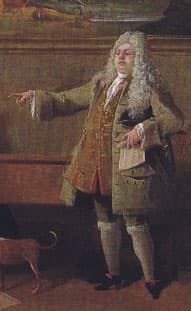
Nicolo Grimaldi, nicknamed “Nicolini”
The famed alto castrato Nicolo Grimaldi, nicknamed “Nicolini” (1673–1732) was considered the leading male singer of his age. The critic and musicologist Charles Burney described him as “a great singer and still greater actor.” Joseph Addison called him “the greatest performer in dramatic music that is now living or that perhaps ever appeared on a stage.” Born in Naples, Nicolini sang in Naples Cathedral and the royal chapel from 1690. He frequently appeared in opera and, during his early career, was primarily associated with Alessandro Scarlatti. In fact, he sang in the premières of Scarlatti’s La caduta de’ Decemviri (1697), Il prigioniero fortunato (1698), Arminio, L’amor generoso and Scipione nelle Spagne (1714), Tigrane (1715) and Cambise (1719). He took part in thirty-six productions in Naples and thirty-four in Venice, and countless composers created roles for him.
When Nicolini went to London in 1708, he became partly responsible for the increasing popularity of Italian opera in London. He made his England début at the Queen’s Theatre in Haym’s arrangement of Scarlatti’s Pirro e Demetrio. That performance was a huge success, and he signed a three-year contract with Owen Swiney. He sang in all the operas during that period and also sang the title role in the first performance of Handel’s Rinaldo. Until the age of 50, Nicolini “followed the pattern typical for star castrati.” Instead of retiring, however, Nicolini began to take on characters whose age approximated his own. Between 1727 and 1731, all new roles specifically written for him were typical tenor roles. These roles helped Nicolini “to conceal his vocal liabilities—shortness of breath, diminished range and sound quality—as they lent themselves to situations in which characters express passions such as vengefulness, disdain, imperiousness, reproachfulness or remorse.” In 1731, Nicolini was engaged to sing in Pergolesi’s first opera Salustia, but he died during rehearsals.
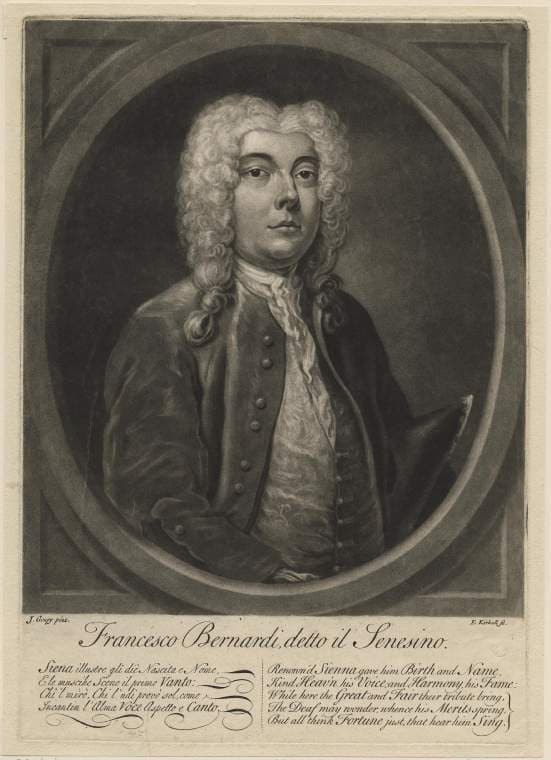
Francesco Bernardi, nicknamed “Senesino”
Francesco Bernardi (1686–1758) was born in Siena, and his nickname “Senesino” was derived from his birthplace. He became one of the most acclaimed castrato singers of his day, and his vocal ability was described in some detail. “He had a powerful, clear, equal and sweet contralto voice, with a perfect intonation and an excellent shake. His manner of singing was masterly, and his elocution unrivalled. Though he never loaded Adagios with too many ornaments, yet he delivered the original and essential notes with the utmost refinement. He sang Allegros with great fire and marked rapid divisions from the chest in an articulate and pleasing manner. His countenance was well adapted to the stage, and his action was natural and noble. To these qualities, he joined a majestic figure.” Senesino initially toured a huge number of Italian theatres and was engaged for Dresden in 1717. He commanded a huge salary but was fired for insubordination in 1720. Apparently, he refused to sing one of the arias from Heinichen’s Flavio Crispo, and tore up the part.
George Frideric Handel, who had been scouting Senesino, brought him to London and engaged him for his company. Senesino joined the Royal Academy of Music for its second season in September 1720. He made his début at the King’s Theatre on 19 November in Giovanni Bononcini’s Astarto and remained a member of the company until June 1728. Senesino sang in all 32 operas produced during this period, and that included seventeen leading roles composed by Handel. Senesino was a superstar, and described as “beyond Nicolini both in person and voice… and beyond all criticism.” The relationship between Handel and Senesino was frequently stormy, as “one was perfectly refractory; the other was equally outrageous.” By all accounts, Senesino’s character was “marred by touchiness, insolence and an excess of professional vanity.” It is reported that he insulted Anastasia Robinson at a public rehearsal in 1724, “for which Lord Peterborough publicly and violently caned him behind the scenes.” Senesino’s tantrums and intrigues were largely responsible for the split with Handel in 1733. In the event, his musical qualifications were superb. He was renowned for “brilliant and taxing coloratura in heroic arias and expressive mezza voce in slow pieces.” Apparently, he had no equal in the pronunciation of recitative, and he “was unsurpassed in accompanied recitatives.
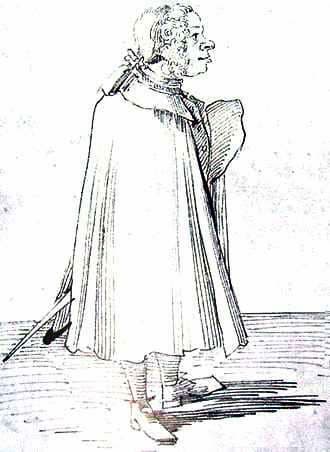
Giacinto Fontana, nicknamed “Farfallino”
Giacinto Fontana (1692–1739), nicknamed “Farfallino,” was primarily active in Rome between 1712 and 1736. Apparently, he specialized in singing soprano female roles, and was said to have had a high-pitched and small boyish voice. Rather feminine in appearance, he is known to have portrayed an occasional pregnant primadonna. It was his graceful stage appearance that probably earned him his nickname “Little Butterfly.” Graceful stage appearance aside, he seemed to have had a somewhat violent temper, as he almost fought a duel with another musician behind the scenes. “The music he sang does not suggest extraordinary technical abilities,” but he nevertheless created roles in operas by Bononcini, Scarlatti, Vivaldi, Vinci and the later works of Francesco Gasparini.